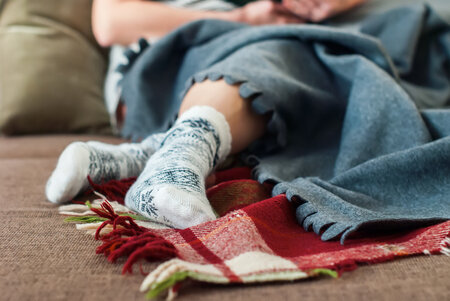FAQ’s about Raynaud’s
/At Texas Foot Specialists we want to ask a question: are you familiar Raynaud’s? Many people are not unless they’ve been diagnosed with it. October is Raynaud’s Awareness Month and a good opportunity to share some information about this condition. Below are some frequently asked questions about Raynaud’s.
Q: What is Raynaud’s?
A: Raynaud’s is a condition that occurs as a result of vasospasm or constriction of the smaller arteries that supply blood to your skin. This limits the blood flow to your toes and fingers.
Q: What are the symptoms?
A: People who have Raynaud’s may experience uncomfortable sensations of tingling, painful throbbing, stinging or numbness in their fingers and toes and the skin may turn bluish white.
Q: Who gets Raynaud’s?
A: Anyone can get this condition, but it does afflict women nine times more often than men. It most commonly begins between the ages of 15 and 30. Although an estimated 15 to 30 million Americans have Raynaud’s, only 1 in 10 living with this condition seek treatment.
Q: What causes Raynaud’s?
A: Scientists don’t know exactly what causes Raynaud’s. They do know that attacks are triggered by exposure to cold temperatures or settings (such as air-conditioned rooms) and stress. Some other factors that raise your risk include: smoking, certain medications, family history and living in colder climates.
Q: How serious is this condition?
A: While not disabling, Raynaud’s can definitely affect your quality of life. It can also indicate a more serious medical condition. While the majority of patients with Raynaud’s only suffer with the symptoms of the condition, it can be associated with other diseases such as lupus, rheumatoid arthritis and certain arterial diseases.
Q: Is Raynaud’s treatable?
A: There is no medication to eliminate Raynaud’s, but some medicine has been shown to reduce the severity and frequency of attacks. Most treatment methods are focused on managing triggers by reducing stress and developing strategies to keep your feet and hands warm.
Q: How do I know if I have Raynaud’s?
A: There is no definitive test for Raynaud’s. If you have symptoms that sound similar to the ones above, it’s important to contact our Sugar Land (281-242-4448), Pasadena (281-991-0600) or Houston (713-664-6677) office for an appointment. Our podiatrists, Dr. Bruce Miller and Dr. Gregory Mangum will examine your toes and feet, get your medical history and ask questions that will help them diagnose Raynaud’s.


